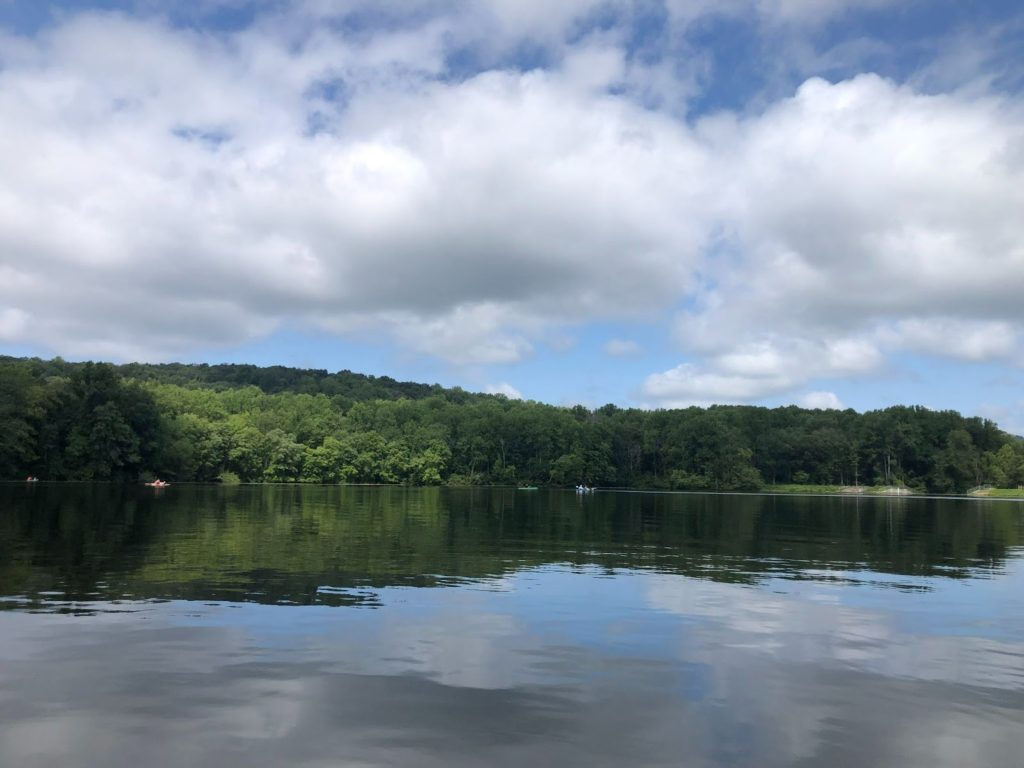Stream Protections

Introduction
The Delaware River Watershed spans four states, provides drinking water for 15 million people, and supports a vast array of recreational activities such as fishing, swimming, and boating. The watershed includes 400 miles of National Wild and Scenic Rivers, six national wildlife refuges, and contributes $25 billion in annual economic activity. Yet 30% of Pennsylvania waterways, including many in the Delaware River Watershed, have impaired water quality due to land development, stormwater runoff, agricultural and industrial pollution, and the build out of fossil fuel infrastructure. Clean Air Council addresses threats to our watershed through outreach to impacted communities, advocacy to local and state officials and regulatory agencies, and when necessary, legal action.
Take Action
Link to current action alerts for watershed protection work.
The Problem
From stormwater runoff to pipeline spills, the Delaware River Watershed is under constant threat of pollution and contamination. As natural landscapes are developed for residential and industrial uses, natural vegetation and natural ground cover is removed and replaced with impervious surfaces. This leads to increases in stormwater runoff and flooding, which carries sediment and other pollutants into storm drains and out to water bodies. This negatively impacts water quality, aquatic habitat, and drinking water supplies. These impacts are exacerbated by climate change and increased precipitation.
The watershed also faces pollution threats from industrial facilities such as wastewater treatment plants, hazardous waste facilities, landfills, chemical plants, oil refineries, and shale gas-related infrastructure. Over the last few years we’ve seen the severe environmental impacts of such projects as the Mariner East pipelines, which caused over 300 reported spills of drilling fluid across Pennsylvania, caused sinkholes, permanently destroyed drinking water wells, punctured public drinking water sources, and prevented residents across the region from accessing clean water.
The Solution
The Council works alongside individuals and organizations to identify, document, and report threats to the watershed to regulatory agencies. Additionally, we work to support coalitions and watershed groups in efforts to strengthen state protections for local streams.
Current campaigns
- Stream Protections: The Council supports several coalition groups in their efforts to upgrade and redesignate Marsh Creek in Chester County, Whetstone Run in Delaware County, and Aquashicola Creek in Monroe County.
- Safe and Healthy Delaware River Petition: The Council and its partners submitted a petition to the Delaware River Basin Commission (DRBC) calling on it, Pennsylvania, and New Jersey to conform with the Clean Water Act by strengthening the water quality standards for the highly urbanized stretch of the river from Philadelphia/Camden to the city of Chester to protect every resident who wants to enjoy recreational activities that might put them into contact with the water, such as fishing, kayaking, canoeing, stand-up paddleboarding, or simply relaxing near this historic river.
- Delaware River Fish Protection Petition: Clean Air Council works with partners to call on the DRBC to update its water quality standards that limit the amount of pollution permit holders can discharge into the river, for the stretch of river extending from Philadelphia and Camden, NJ to Wilmington, DE to protect aquatic life to the fullest extent required by the Clean Water Act..
- The Council participates in and engages communities in the public commenting process for new or expanding fossil fuel infrastructure that threatens the watershed, such as the Mariner East, Adelphia, and PennEast pipelines. Through outreach and education, the Council aims to raise public awareness and encourage residents to submit well-informed and effective public comments to the Pennsylvania Department of Environmental Protection (DEP) on permitting applications for pipelines, compressor stations, and other infrastructure that threatens the watershed.
- The Council also participates in and supports residents in commenting on existing industrial infrastructure that threatens the watershed. For instance, Council staff assisted residents in the effort to challenge the extension of a construction deadline that would increase water pollution from the Monroe Refinery in Trainer, Delaware County. The Council also assisted Marcus Hook residents in taking action to decrease water pollution from the Marcus Hook Energy Center.
Recent successes
- Clean Air Council supported landowners in both Pennsylvania and New Jersey in their fight against the dangerous and unneeded PennEast pipeline. In October 2021, after seven years of resisting land takings and fighting to protect conservation land and water resources, residents won their battle when PennEast pipeline announced they would shut the project down for good due to lack of support.
- Clean Air Council supported the Whetstone Run Coalition in convincing Marple Township, Delaware County, to reject a proposed plan to develop the 89 acre Don Guanella forest with 141 homes (December 2020). The forest surrounds Whetstone Run – a tributary the coalition is urging DEP to upgrade.

